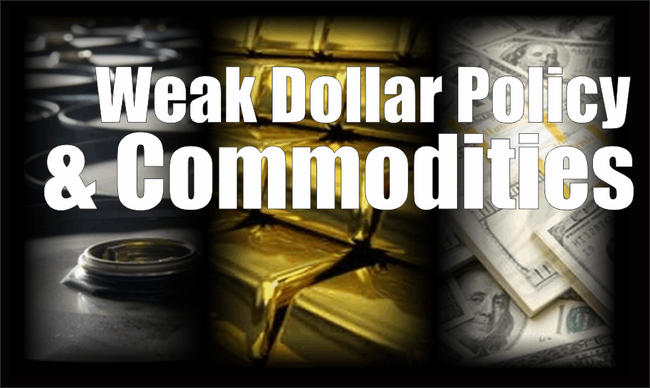
Items that tend to be more susceptible to the impacts of a weak dollar include commodities, gasoline, and travel. Low-cost provider countries produce goods cheaply during times of U.S. dollar strength. Companies sell these goods at higher prices to consumers abroad to make a sufficient margin. When the dollar weakens, it means that it can buy less of a foreign currency compared to what it could buy previously. This decline in value can have significant implications for various economic factors, both domestically and internationally. Foreign governments that require U.S. dollar reserves will end up paying relatively more to obtain those dollars.
What Do the Terms “Weak Dollar” and “Strong Dollar” Mean?
Strength, as noted above, is relative to other currencies where valuations are being reduced in an effort to help fuel growth. Additionally, we cannot discount deleveraging playing a role as debts are being paid off, leading to fewer dollars in the system and increasing the value of those dollars. The strength of the U.S. dollar rose to a 20-year high in 2022 but it had weakened by the end of August 2023. They can include a high rate of inflation, chronic current account and budget deficits, and sluggish economic growth.
Domestic Impact
Over a period of two years (mid-2009 to mid-2011) the U.S. dollar index (USDX) fell 17 percent. Consequently, the cost of importing electronic components increases for ABC Corporation. Currency valuations are always viewed as a comparison between two currencies. The U.S. dollar may be strong only weak dollar definition because the British pound is weak, or vice versa. For example, the British pound fell to $1.14, its lowest level in 37 years, on Sept. 7, 2022. Expatriates, or U.S. citizens living and working overseas, will also see their cost of living decrease if they still use or are paid in dollars.
Business & economics
Since the U.S. dollar is a floating currency, its value will vary according to market trading trends. A weak dollar means that more dollars are needed to buy a unit of foreign currency. Focus on reducing or eliminating non-essential spending, or spending on items that may see an increase in prices driven by a weak dollar. If you’re planning any foreign vacations, consider currency values overseas to determine where your dollars would stretch the furthest.
- Pete Rathburn is a copy editor and fact-checker with expertise in economics and personal finance and over twenty years of experience in the classroom.
- Expenditures are paid in U.S. dollars as those dollars fall but revenues are received in stronger currencies.
- The imposition of sanctions can have an immediate effect on a country’s currency.
- Items exported from the U.S. become cheaper, making it easier for companies that sell overseas to remain competitive in the marketplace.
- A “weak dollar” refers to a situation in which the value of the United States dollar (USD) declines relative to other currencies in the foreign exchange market.

When stocks soar, and unemployment remains low, for instance, the dollar can rise. The opposite effect may result if the market plunges or if joblessness increases. If you’ve been managing your finances for any length of time, you probably understand the value of a dollar.
The country’s position as an oil-rich, economically stable nation gives its currency such a high value. McDonald’s Corp. (MCD) and Philip Morris International Inc. (PM) are well-known examples of U.S. companies with a large percentage of sales occurring overseas. While some of these companies use derivatives to hedge their currency exposures, not all do, and those that do hedge may only do so in part. He believes the purported value of the dollar is too high for its actual worth, and that’s why some industries are not making as much money as they have in the past. Mnuchin’s view is not surprising to Brian Gendreau, a finance professor in the University of Florida’s Warrington College of Business.
Thomas J Catalano is a CFP and Registered Investment Adviser with the state of South Carolina, where he launched his own financial advisory firm in 2018. Thomas’ experience gives him expertise in a variety of areas including investments, retirement, insurance, and financial planning.
A strong dollar reflects a robust U.S. economy, low Federal Reserve interest-rate increases, and tax policies that encourage companies to bring back profits from abroad. A weak dollar can signal an economic downturn, rising inflation, or both. The strength or weakness of the U.S. dollar will impact FX traders and, in general, any international currency plays. The values of about 170 currencies fluctuate constantly in the foreign exchange, or Forex, markets. However, just four currencies are used as benchmarks and they are routinely compared to each other as a measure of relative strength or weakness. They are the British pound, the Japanese yen, the euro, and the U.S. dollar.


